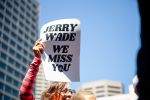By Dan Reed, USA TODAY
Now that air travelers are warming to the idea of paying extra for service amenities, American Airlines is going to ask them to pay to stay warm in the air.
Beginning May 1, coach passengers on American’s domestic flights that last more than two hours, as well as those on flights to Hawaii, Canada, Mexico, the Caribbean and Central America, will have to pay $8 for a blanket and inflatable neck pillow. The airline will throw in a $10 off coupon for purchases of more than $30 at Bed Bath & Beyond stores.
FLIGHT NEWS: Our Today in the Sky community
On domestic flights of less than two hours, coach passengers won’t have access to blankets at all. Premium-class passengers on all American flights and coach passengers on longer international flights will continue to get free blankets and pillows.
American (AMR) says the fee is largely a bottom-line decision.
“Everything we do is evaluated in terms of what’s best economically for the company while still providing services customers want,” says American spokeswoman Andrea Huguely.
“I don’t think it’s an unreasonable fee,” says Henry Harteveldt, travel industry analyst at Forrester Research. “It gives the passenger some control. If they want a blanket they can pay extra for it; if not, they didn’t pay for it as part of their fare.”
Airlines are scrambling to find new and larger sources of “ancillary” revenue — money paid for services or items other than a seat. The Centre for Asia Pacific Aviation expects airlines globally to take in $58 billion in ancillary revenue this year — 12% of their total expected revenue.
In 2009, $2.9 billion, or 11.5% of parent company AMR’s $19.9 billion, came from ancillary sources. In 2008, the carrier reported about $2.2 billion in ancillary revenue, 9.2% of the company’s $23.8 billion in total revenue.
That big drop in total revenue was driven by a recession that created the biggest decline in air travel from one year to the next in the industry’s tumultuous history. And though passenger traffic picked up slightly, analysts don’t expect it to return to 2008 levels for two to three years.
Most carriers now charge passengers $25 to check one bag, and $35 to check a second bag on domestic flights. Bag fees make up the lion’s share of the ancillary revenue. But the category includes revenue from booking and changing tickets, the sale of food, fees for upgrading seats, and commissions airlines get from selling rental cars and hotel rooms via their websites.
“Welcome to flying in 2010,” Harteveldt says. “Other than the basic seat, the only thing you can count on to come with your fare is an oxygen mask and a seat belt.”
The airlines aren’t to blame, he says. “The traveling public needs to realize that we’ve been so thirsty for low fares that this is what we’ve gotten for ourselves,” he says.















